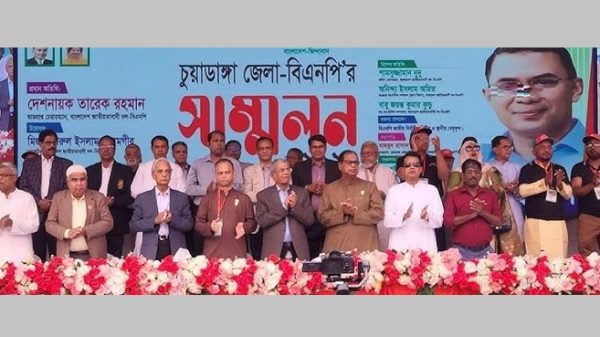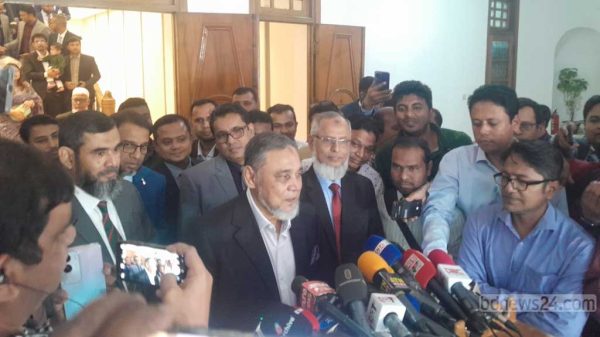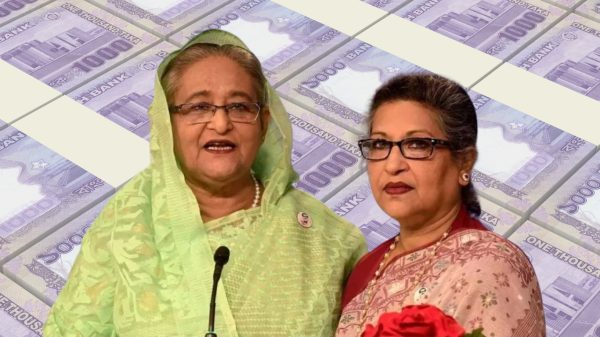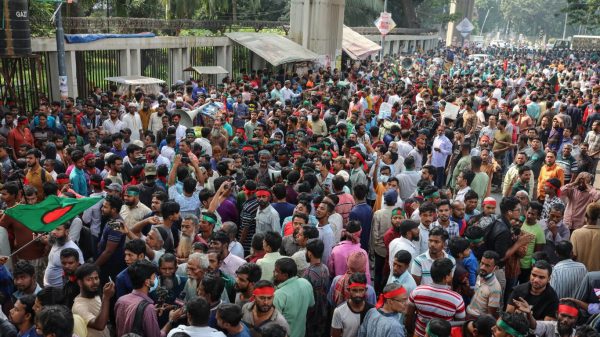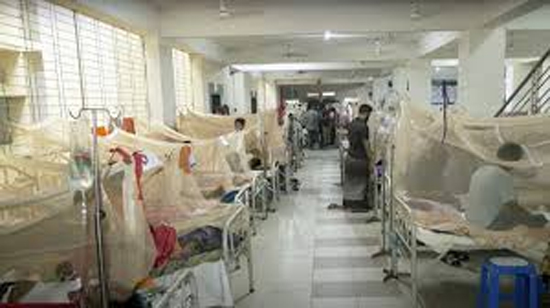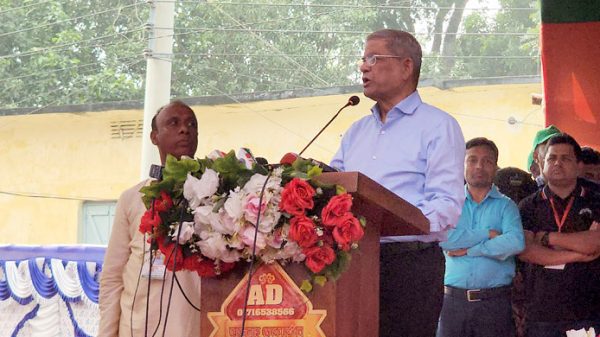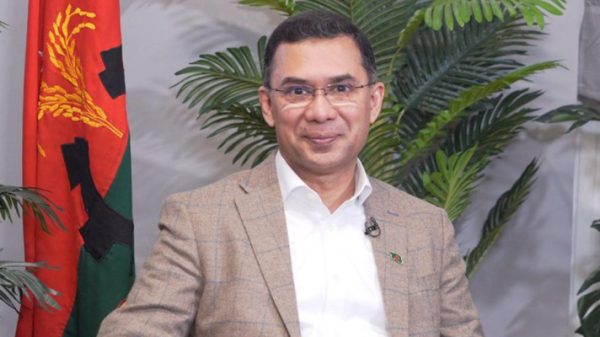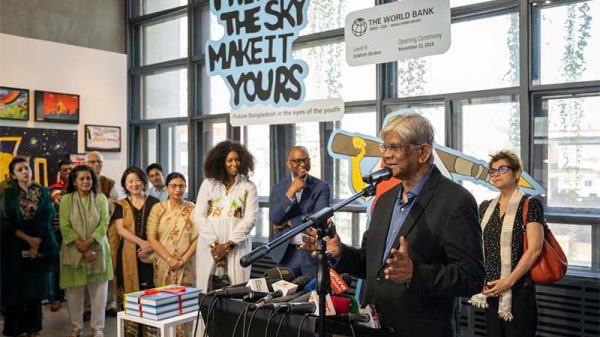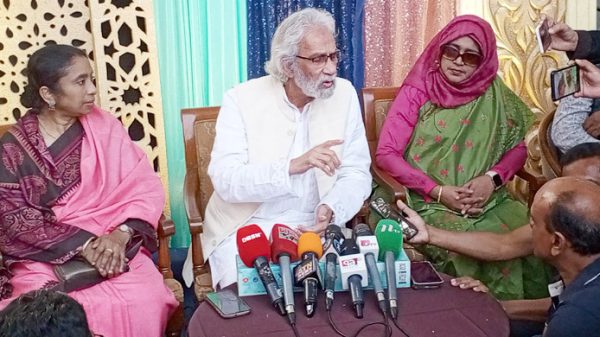Realise fairer wages for BD garment workers, support extra costs

- Update Time : Wednesday, 20 December, 2023, 01:55 pm
- 88 Time View
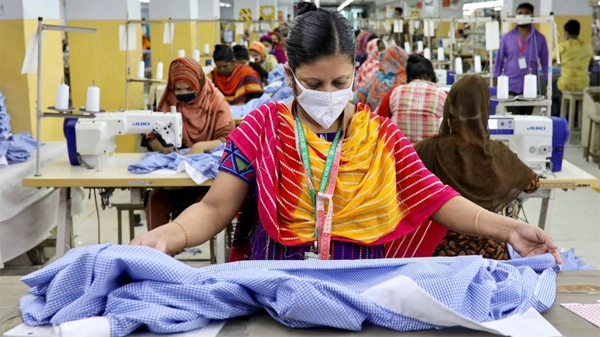
Online Desk: Eight US lawmakers urged the American Apparel and Footwear Association (AAFA) to strongly support fairer wages and labour rights in Bangladesh’s garment industry by leveraging sourcing influence and supplementing pay-hike costs.
The Congress members in a letter to the AAFA president and CEO, Stefen Lamar, on December 15 called for committing to maintaining a long-term sourcing relationship with the suppliers and to increasing brands’ purchasing prices to fully absorb the additional labour costs.
“While we were encouraged to see several US brands express support for a wage increase and a fair, transparent wage-setting process, words are not enough. The reluctance to support a living wage of 23,000 BDT, or around $208 per month, is not only disheartening but shameful,” reads the letter.
Signed by Ilhan Omar, James P McGovern, Jan Schakowsky, Raul M Grijalva, Barbara Lee, Alexandria Ocasio-Cortez, David J Trone, and Susan Wild, the lawmakers’ letter is available on Ilhan Omar’s official website.
The AAFA is the US national trade association representing more than 1,000 apparel, footwear and other sewn products companies, and their suppliers, with contribution of more than $490 billion in annual US retail sales.
“Due to their significant presence and operational leverage in Bangladesh, we believe that AAFA-member companies are strongly positioned to support workers’ petitions for livable wages and to vocally champion their labor rights in a key country for the global apparel industry,” the Congressmen state in the letter.
“We are writing to urge the American Apparel & Footwear Association (AAFA) to strongly support the demands of Bangladesh’s garment workers for fairer wages.”
The recent wage increases announced by Bangladesh’s wage board, which would not even meet the rising cost of living, have led to extended mass protests, they have noted.
They also mentioned police action against protesters and trade-union leaders, “resulting in at least four deaths, numerous injuries, and a wave of unjust arrests, detentions, and indefinite factory shutdowns”.
The US lawmakers agree with the Biden administration’s call for the government of Bangladesh to respect and protect workers’ rights to organize, protest peacefully, and collectively bargain “without fear of retaliation, violence, or intimidation”.
They urge US brands to use their influence and stand together with workers by immediately demanding better wages and rights for Bangladeshi working families.
This letter echoes the sentiments of local labour organizations, international trade unions, and the US government to revisit the minimum-wage decision and respect worker rights, including the freedom of association.
The letter is endorsed by Academics Stand Against Poverty, Asian Pacific American Labor Alliance (AFL-CIO Affiliate), IndustriALL Global Union, Institute for Policy Studies – Global Economy Project, Labour Behind the Label, Oxfam America, and Workers United (SEIU Affiliate).
The AAFA was urged to pressure the government and garment manufacturers of Bangladesh to improve the wage-setting process and accept workers’ minimum demand for $208 per month to align with the real cost of living
They also urge the association to instruct the suppliers to promptly withdraw or to dismiss “any false criminal cases” filed against workers and union leaders.
“Warn your suppliers to stop filing criminal cases against workers, and make clear that the dismissal, blacklisting, or other harassment of workers and union leaders is unacceptable and will influence your sourcing decisions,” the letter reads.
They also urged AAFA to call on Bangladeshi authorities to stop arresting workers and union leaders in response to wage protests and “to immediately release innocent detained individuals”.
Regarding minimum wage for workers in the Export Processing Zones (EPZ) factories, the Congressmen have said brand engagement can play a critical role in ensuring that the EPZ wage-setting process does not follow the same “disastrous and unfair” path as in the garment sector outside the zones.
On November 07, the government fixed Tk 12,500 as minimum monthly wage for garment workers.
On December 07, the government set Tk 12,800 as minimum wage for garment workers and between Tk 13,250 and Tk 14,025 for other sectors in the EPZs.

